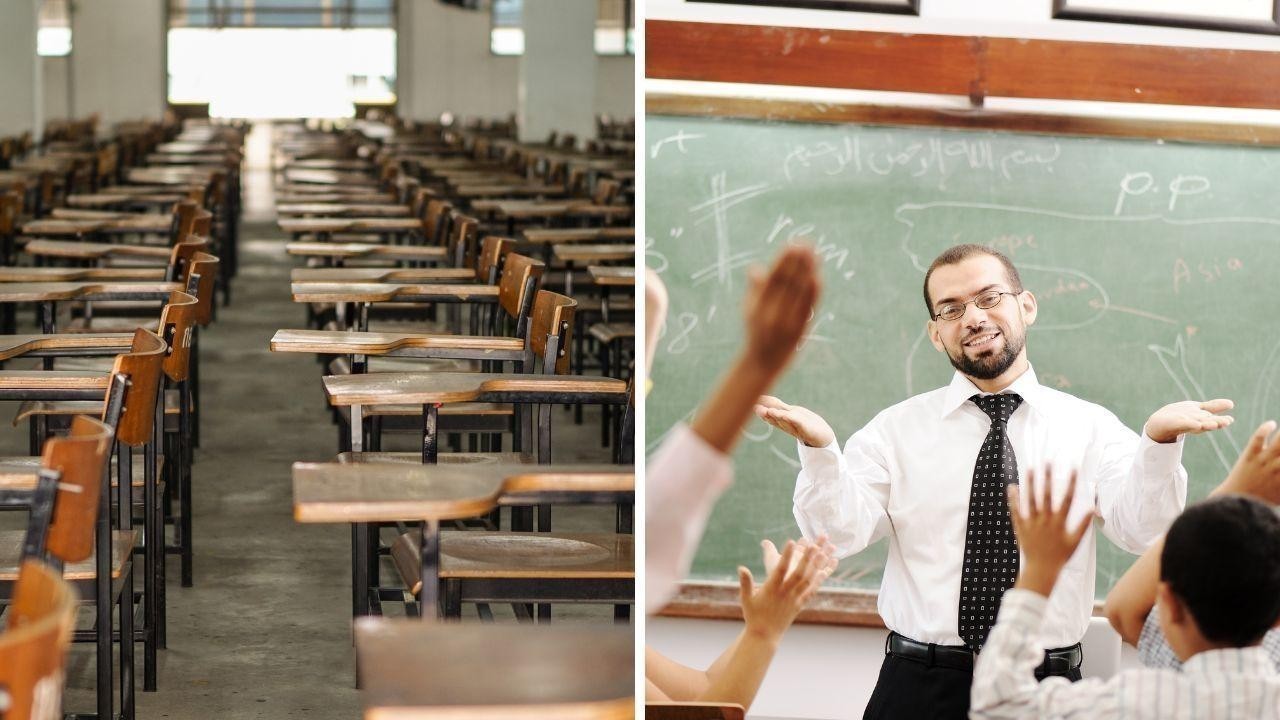
Post by : Zayd Kamal
In today’s increasingly diverse world, the importance of cultural competence in today's classrooms cannot be overstated. As classrooms become melting pots of different cultures, languages, and backgrounds, educators face the vital task of ensuring that all students feel valued and understood. Cultural competence is not merely an educational buzzword; it is a crucial skill that shapes how teachers interact with their students, influence their learning experiences, and foster an inclusive environment.
Cultural competence involves recognizing and respecting the diverse cultural backgrounds of students, as well as understanding how these differences can impact learning. It encompasses a set of attitudes, skills, and behaviors that enable educators to effectively teach students from various cultural contexts. This ability to engage with diverse populations is essential for creating an inclusive classroom where every student feels safe and encouraged to participate.
One of the primary reasons why the importance of cultural competence in today's classrooms is paramount is its role in fostering inclusion and equity. When teachers are culturally competent, they are more likely to recognize and address the unique challenges faced by students from different backgrounds. This understanding helps to level the playing field, ensuring that all students receive the support they need to succeed. For instance, culturally competent teachers are aware of the different communication styles, learning preferences, and behavioral norms that may exist among their students. By adapting their teaching strategies to accommodate these differences, educators can create a more equitable learning environment. This approach not only benefits students from minority backgrounds but enriches the learning experience for everyone in the classroom.

Another significant aspect of the importance of cultural competence in today's classrooms is its impact on student engagement. When students see their cultures represented and respected in the curriculum, they are more likely to feel connected to the material being taught. This connection fosters a sense of belonging and encourages active participation. For example, incorporating diverse literature and perspectives into lessons can help students from different cultural backgrounds see themselves reflected in their education. This representation validates their experiences and enhances their motivation to learn. Additionally, culturally relevant teaching strategies, such as group discussions that encourage sharing personal experiences, can further engage students and deepen their understanding of the subject matter.
Cultural competence also plays a crucial role in building strong relationships between teachers and students. When educators take the time to learn about their students’ backgrounds, interests, and values, they demonstrate that they care about their students as individuals. This effort helps establish trust and rapport, which are essential for effective teaching and learning. Moreover, strong relationships foster a positive classroom climate where students feel comfortable expressing themselves. When students know that their teachers respect and appreciate their cultural identities, they are more likely to take academic risks, ask questions, and seek help when needed. This openness ultimately leads to improved academic performance and social development.
In our interconnected world, preparing students for a diverse and global society is more important than ever. Culturally competent educators play a vital role in equipping students with the skills they need to navigate this complexity. By teaching students to appreciate and understand different cultures, teachers can help them become empathetic individuals who contribute positively to society. Educational programs that emphasize cultural competence often include discussions on social justice, equity, and global citizenship. These topics encourage students to think critically about their roles in the world and the impact of their actions on others. As students develop these skills, they become more engaged citizens, ready to advocate for themselves and others.
To harness the importance of cultural competence in today's classrooms, educators must actively work to develop their own cultural awareness and competencies. Continuous learning is vital for educators, who should engage in professional development opportunities focused on cultural competence. Workshops, seminars, and online courses can provide valuable insights and tools for understanding diverse student populations. Teachers should also reflect on their own cultural backgrounds and biases. Understanding how personal experiences shape perspectives can help educators become more empathetic and responsive to their students’ needs. Building relationships with students’ families is essential as well; establishing open lines of communication allows teachers to learn about the values, traditions, and expectations of their students’ cultures. Diversifying the curriculum is another key aspect; educators should strive to include diverse perspectives and materials in their teaching. This not only enriches the curriculum but also provides students with a broader understanding of the world around them. Finally, encouraging dialogue creates a classroom environment where students feel safe to share their cultural experiences. Teachers can facilitate discussions that promote cultural exchange and learning among peers.
The importance of cultural competence in today's classrooms is very high. It helps teachers understand different students and their backgrounds. When teachers know about cultural competence, they can help all kids feel included and valued in the classroom. This makes the importance of cultural competence in today's classrooms clear. Students learn better when they see their cultures represented in lessons. Teachers who practice cultural competence can create strong relationships with their students. This helps students feel safe to share and ask questions. It also prepares students for a world where they meet many different people. By focusing on the importance of cultural competence in today's classrooms, we can ensure every child feels respected and learns well.
This article is for informational purposes only and reflects the views of the dxb news network. The content aims to highlight the importance of cultural competence in today's classrooms and should not be considered professional advice. Always seek guidance from qualified educators or experts in the field for specific educational concerns.
Cultural competence, diversity in education, inclusive classrooms, student engagement, equity in education, culturally relevant teaching, teacher-student relationships, global citizenship, social-emotional learning, multicultural education, classroom environment, educational equity, learning preferences, respect for diversity, cultural awareness

Winter Skin Care: 10 Hydrating Drinks That Give Natural Glass Skin Glow
Learn how simple winter drinks keep your skin hydrated reduce dryness and support a natural glass sk

10 Songs That Carry the Same Grit and Realness as Banda Kaam Ka by Chaar Diwari
From underground hip hop to introspective rap here are ten songs that carry the same gritty realisti

PPG and JAFZA Launch Major Tree-Planting Drive for Sustainability
PPG teams up with JAFZA to plant 500 native trees, enhancing green spaces, biodiversity, and air qua

Dubai Welcomes Russia’s Largest Plastic Surgery Team
Russia’s largest plastic surgery team launches a new hub at Fayy Health, bringing world-class aesthe

The Art of Negotiation
Negotiation is more than deal making. It is a life skill that shapes business success leadership dec

Hong Kong Dragon Boat Challenge 2026 Makes Global Debut in Dubai
Dubai successfully hosted the world’s first Hong Kong dragon boat races of 2026, blending sport, cul

Ghanem Launches Regulated Fractional Property Ownership in KSA
Ghanem introduces regulated fractional real estate ownership in Saudi Arabia under REGA Sandbox, ena

Winter Skin Care: 10 Hydrating Drinks That Give Natural Glass Skin Glow
Learn how simple winter drinks keep your skin hydrated reduce dryness and support a natural glass sk

Why Drinking Soaked Chia Seeds Water With Lemon and Honey Before Breakfast Matters
Drinking soaked chia seeds water with lemon and honey before breakfast may support digestion hydrati

Morning Walk vs Evening Walk: Which Helps You Lose More Weight?
Morning or evening walk Learn how both help with weight loss and which walking time suits your body

What Really Happens When You Drink Lemon Turmeric Water Daily
Discover what happens to your body when you drink lemon turmeric water daily including digestion imm

DXB News Network Presents “Ctrl+Alt+Wim”, A Bold New Satirical Series Starring Global Entertainer Wim Hoste
DXB News Network premieres Ctrl+Alt+Wim, a bold new satirical micro‑series starring global entertain

High Heart Rate? 10 Common Causes and 10 Natural Ways to Lower It
Learn why heart rate rises and how to lower it naturally with simple habits healthy food calm routin

10 Simple Natural Remedies That Bring Out Your Skin’s Natural Glow
Discover simple natural remedies for glowing skin Easy daily habits clean care and healthy living ti

Mattel Revamps Masters of the Universe Action Figures for Upcoming Film
Mattel is set to revive Masters of the Universe action figures in sync with their new movie, ignitin